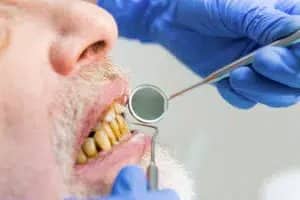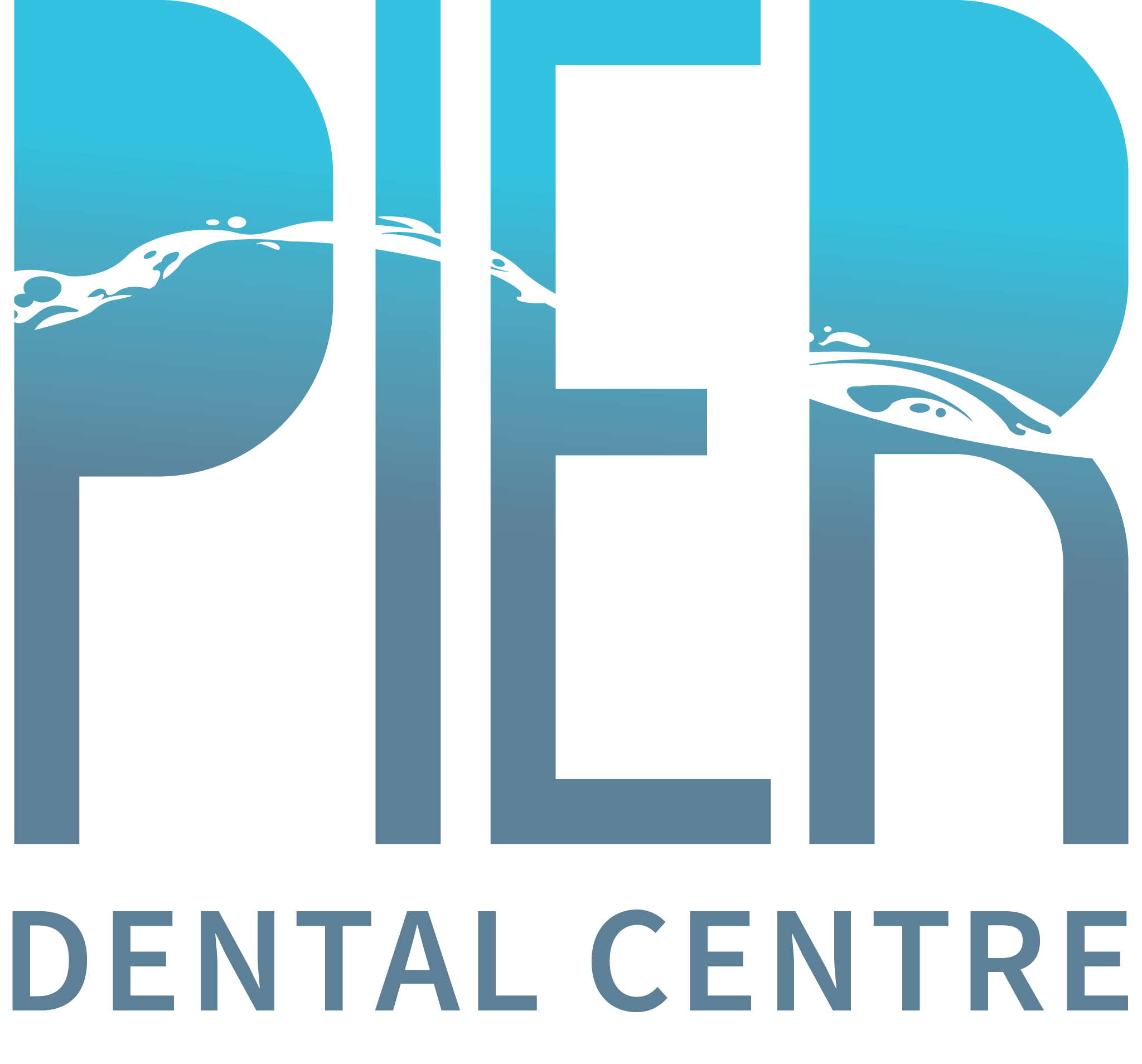White teeth are often seen as indicative of youth and health, and many Canadians pursue whiter teeth through products to use at home such as whitening toothpaste, whitening strips and trays, brushes, mouthwashes, as well as visits to the dentist for professional whitening. Despite this, many will find themselves looking in the mirror and asking, “why are my teeth yellow?”
Even when brushing and flossing conscientiously and following a good oral care routine, you may find that you have yellow, stained teeth. What causes teeth to stain and what can you do to help prevent it?
Here are 10 causes of yellow teeth:
Genetics
The colour of your teeth can be influenced by your genetics. If one of your parents had yellow teeth, there is a high probability that your teeth are yellow as well. Additionally, your teeth could take on different hues, including reddish yellow, reddish brown, and reddish grey. These are all natural shades and can run from light to dark. Thicker, whiter enamel is also present in some families.
Food and Drink
There are many foods and drinks that can cause stains on your teeth. Berries and tomatoes, for example, contain pigments that can stain your tooth enamel. Curry and other spices may also cause discolouration. Among drinks, coffee, tea, wine, and cola are known to cause stains to teeth. Even foods that are not coloured themselves may prove problematic, as is the case with some starchy foods like potatoes and pasta, which can lead to conditions that cause staining. Wonder what you should eat? These are foods that are good for your teeth.
Tobacco Use

Smoking can lead to yellow teeth or may lead to brownish stains. Chewing tobacco may also lead to stains on your teeth.
Poor Dental Hygiene
Proper brushing and flossing are an important part of your oral care routine. Not only is this important in warding off decay and resultant cavities and gum disease, but it is also a factor in maintaining whiter teeth. When you forget to brush and floss, it allows plaque and food to build up, leading to discoloured teeth. Missing regular visits to your dentist for professional cleaning can also lead to the development of stains.
Disease
When certain diseases prevent the proper development of tooth enamel and dentin (the part of the tooth under the enamel), tooth discolouration may occur. In other instances, medical treatment can cause teeth to discolour, such as when receiving head and neck radiation or chemotherapy. The enamel in a baby’s teeth can be affected by infections suffered by the pregnant mother.
Medications
Certain drugs are known to cause discolouration in the teeth of children. For example, when children under the age of 8 receive the antibiotics tetracycline and doxycycline, it may impact the formation of enamel in their teeth. Discolouration may also be caused by the use of mouthwashes and rinses that contain chlorhexidine and cetylpyridinium chloride.
Other medications that may cause discolouration include antihistamines, antihypertensive medications, and antipsychotic drugs.
Aging

Beneath your tooth’s enamel is dentin. This part of the tooth may range from grey to black but is most typically yellow. As we age, the enamel of our teeth gradually wears away, allowing the dentin to show through, resulting in a change of colour.
Fluorosis
Fluoride is used in toothpaste and treatments at your dentist to protect teeth and help prevent the formation of cavities, but an excess of fluoride can result in the formation of spots on the teeth. Aside from toothpaste, the main sources of fluoride include fluoridated drinking water, prescribed fluoride tablets, and dental treatments.
Trauma/ Injury
Kids who engage in sports may suffer injuries to the mouth. If they are under the age of 8 years, this can have an effect on the formation of enamel. Trauma to the teeth can also cause discolouration among adults if the injury causes a decrease in the blood flow to the tooth or if the nerve dies. Damage to the tooth’s interior may indicate the presence of bleeding, requiring professional intervention.
Grinding
Grinding, also known as bruxism, is a common issue, particularly among those who suffer from stress. Unconscious grinding of the teeth is more common during sleep, but may also happen during waking hours. It is harmful to the enamel of the teeth and may result in tooth enamel cracking and yellowing. If you believe this is a symptom you suffer from, read our article: Grinding Teeth at Night: Do I Really Need a Night Guard?
Yellow teeth are quite common and nothing to be embarrassed about. Proper oral care is important in maintaining a white smile. Brush and floss regularly and be sure to follow a schedule of regular dental visits. You can also schedule a laser teeth whitening in North Vancouver
To learn more about how to whiten teeth, contact your dental professional, who has several methods available to restore your bright, white smile.



0 comments on “10 Causes of Yellow Teeth and How to Avoid Them”